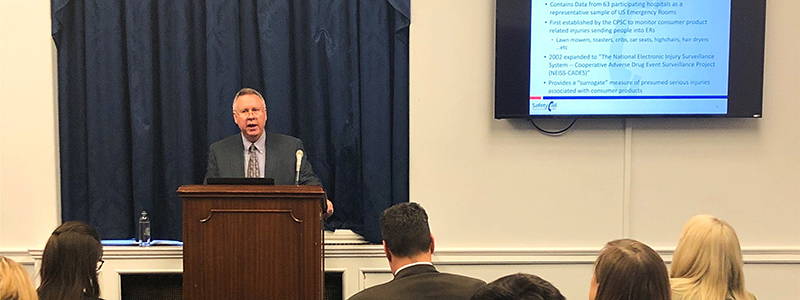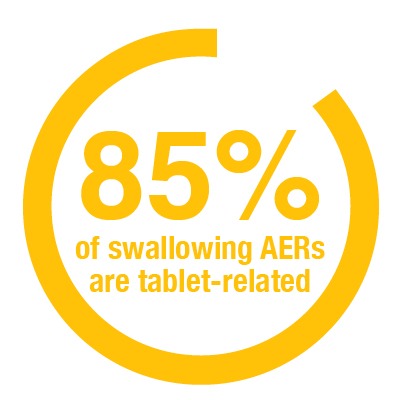MARCH 3, 2020
Adverse event reporting (AER) for dietary supplements reveals a wide margin of safety for these products, Dr. Richard Kingston of CRN associate member company SafetyCall International explained during last week's Congressional Dietary Supplement Caucus (DSC) briefing, presented by CRN in partnership with fellow industry trade associations. Learn more.

Rick Kingston, PharmD., discusses AER data at the Feb. 27 DSC briefing
Talking points to help you tell the story of supplement safety
Address sensationalized misinterpretations of data with CRN's talking points. As with a previously debunked 2015 study asserting a misleading volume of dietary supplement-related emergency room visits, it is important to present the data in its proper context to provide a true picture of supplements’ safety profile.
Also important is underscoring the fact that safety is woven into the fabric of industry regulation—as Dr. Kingston did at the DSC briefing, highlighting the key safety features of the Dietary Supplement Health and Education Act (DSHEA).
CRN's Delivery Form Safety Task Force works to mitigate swallowing concerns
 Companies can use AER data to gain meaningful insights about consumer behavior and product design in relation to safety. For example, Michael Kerins of CRN member company P&G recently reported to CRN's Delivery Form Safety (DFS) Task Force that 85% of dietary supplement AERs associated with swallowing are tablet-related. For those interested in addressing these safety concerns, contact Rashidah Denton to learn more about the DFS Task Force.
Companies can use AER data to gain meaningful insights about consumer behavior and product design in relation to safety. For example, Michael Kerins of CRN member company P&G recently reported to CRN's Delivery Form Safety (DFS) Task Force that 85% of dietary supplement AERs associated with swallowing are tablet-related. For those interested in addressing these safety concerns, contact Rashidah Denton to learn more about the DFS Task Force.

